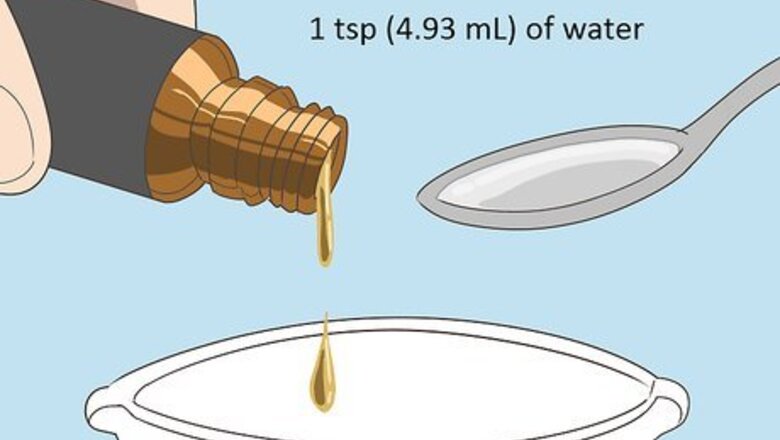
views
Do you have to dilute essential oils before putting on skin?
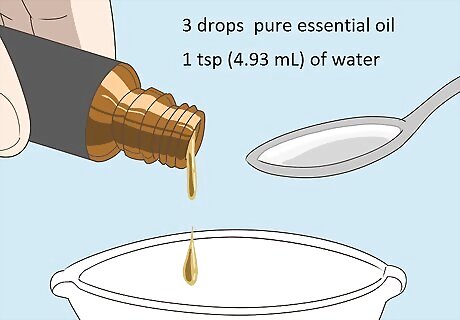
Yes, always dilute essential oils with a carrier oil but never use water. Water does not mix with oil so it wont dilute it at all. A good rule of thumb is to mix 3 drops of pure essential oil with 1 tsp (4.93 mL) of a carrier oil like vegetable or nut oil. This creates a 3% solution of essential oil that is safe for topical applications. Using pure essential oils on your skin without diluting them can cause irritation and skin damage. If you want to use essential oils for large topical applications, such as a massage, it’s better to dilute it to a 1% solution. To do so, use just 1 drop of pure essential oil for every 1 tsp (4.93 mL) of carrier oil. Make sure to shake your solution up well to mix it thoroughly.
What is the best carrier oil to mix with essential oils?
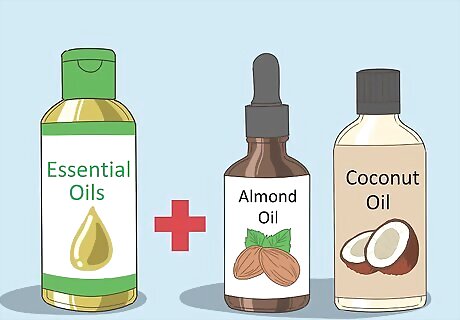
Any vegetable or nut oil works great on the skin. Almond oil, apricot kernel oil, grapeseed oil, jojoba oil, coconut oil, and avocado oil are all good choices. Certain oils absorb faster than others and have different shelf lives, so take those things into account when you’re choosing a carrier oil to mix with your essential oils. Grapeseed and hazelnut oil are absorbed quickly, for example, while jojoba and sweet almond oil are absorbed more slowly. Coconut oil has the longest shelf life of any carrier oil. It can last anywhere from 1-2 years depending on the storage condition. Jojoba oil is a popular choice for the face because it's moisturizing and doesn’t clog pores. Avoid carrier oils that have strong aromas because they'll cover up the scent of the essential oils and you won’t experience the aromatherapeutic benefits.
Where is the best place to apply essential oils topically?
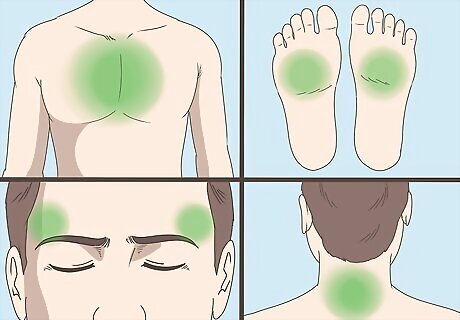
The chest, the temple, the bottoms of feet, and other pressure points. These are all common places to topically apply essential oils because they're thought to be powerfully sensitive areas of the body. You can also use essential oils to give body massages if you want to do a larger topical application. Pressure points located on the wrists, ankles, and back of the neck are often targeted for acupuncture. Never apply essential oils inside your ears or nose and keep them away from your eyes. If you accidentally get essential oil in one of these areas, rinse it out thoroughly with running water.
How often should you apply essential oils topically?
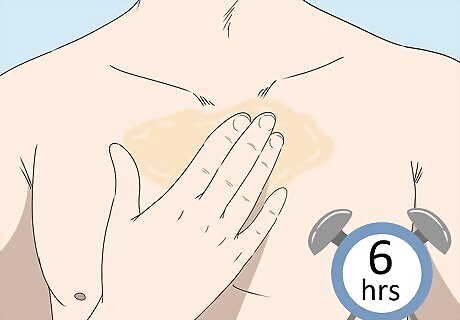
Every 4 to 6 hours as needed. The aromatic effects of topical applications of essential oils can last for a few hours at a time. Apply small amounts of your chosen diluted essential oil throughout the day to help achieve the benefits you desire. If you’re using essential oils on your skin for the first time, start with a single application the first day and wait 24 hours to make sure you don’t experience any side effects.
Can you use essential oils as moisturizer?
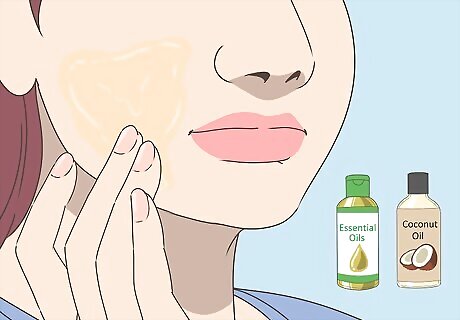
Essential oils themselves don’t moisturize the skin. However, you can dilute them with a carrier oil that moisturizes your skin for added benefit. Almond oil, jojoba oil, grapeseed oil, and avocado oil are all good choices that your skin will love! You could also add a few drops of essential oil to an unscented moisturizer or lotion to give it some aroma. Pomegranate seed oil helps with anti-aging and is a great addition to moisturizers. Ylang ylang oil also works to cleanse your skin.
What is the best essential oil for stress and anxiety?
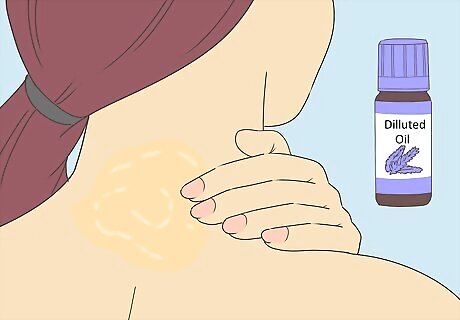
Lavender, chamomile, basil, and frankincense are all options. Rub some diluted essential oil onto your temples or the back of your neck to help relieve stress and anxiety. You can apply the diluted oil using your fingertips or by saturating a cotton ball and using that to rub it on. Keep in mind that results are very individual, so none of the above essential oils are guaranteed to work for you. The best way to find out what works for you is to experiment or to get treated by an experienced aromatherapist.
Can you use any essential oil on skin?
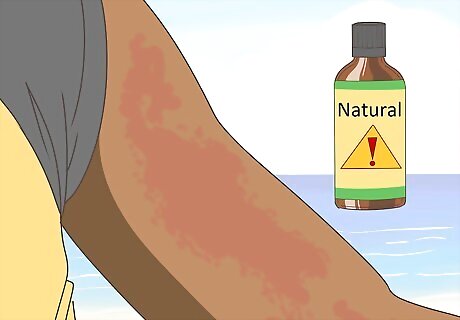
Not all essential oils are safe for topical use. Essential oils are extremely concentrated and can irritate your skin if they aren't diluted. Oils like bergamot and citrus oils can make your skin sensitive to the sun. Some oils are dangerous in other ways; for example, anise oil can cause circulatory issues if you use it too often. Always do your research and read up on any potential side effects before using an essential oil on your skin. Just because essential oils come from natural sources doesn’t mean they're safe. If you have symptoms like slow/shallow breathing, seizures, persistent cough/gagging, shortness of breath, nausea, vomiting, diarrhea, skin irritation, or eye redness/irritation after using an essential oil, you might be experiencing toxicity. Rinse the skin where you applied the oil thoroughly and call your local poison control center for further guidance.
Is lavender essential oil bad for skin?
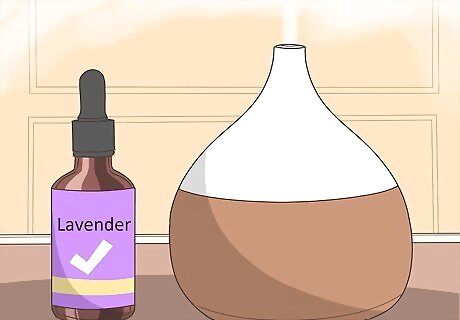
It can be if you’re allergic to it. Lavender essential oil contains common allergens that can cause rashes and skin irritation, even if it’s diluted properly. To play it safe, it’s better to use lavender oil for aromatherapy instead of for topical applications. If you want to find out whether you’re allergic to lavender essential oil or not, do a patch test. To do a patch test, first wash your forearm with unscented soap and dry it thoroughly. Then, apply a dab of diluted lavender essential oil to your forearm and cover it with sterile gauze for 24 hours. If there is no burning or irritation, you aren’t allergic.


















Comments
0 comment